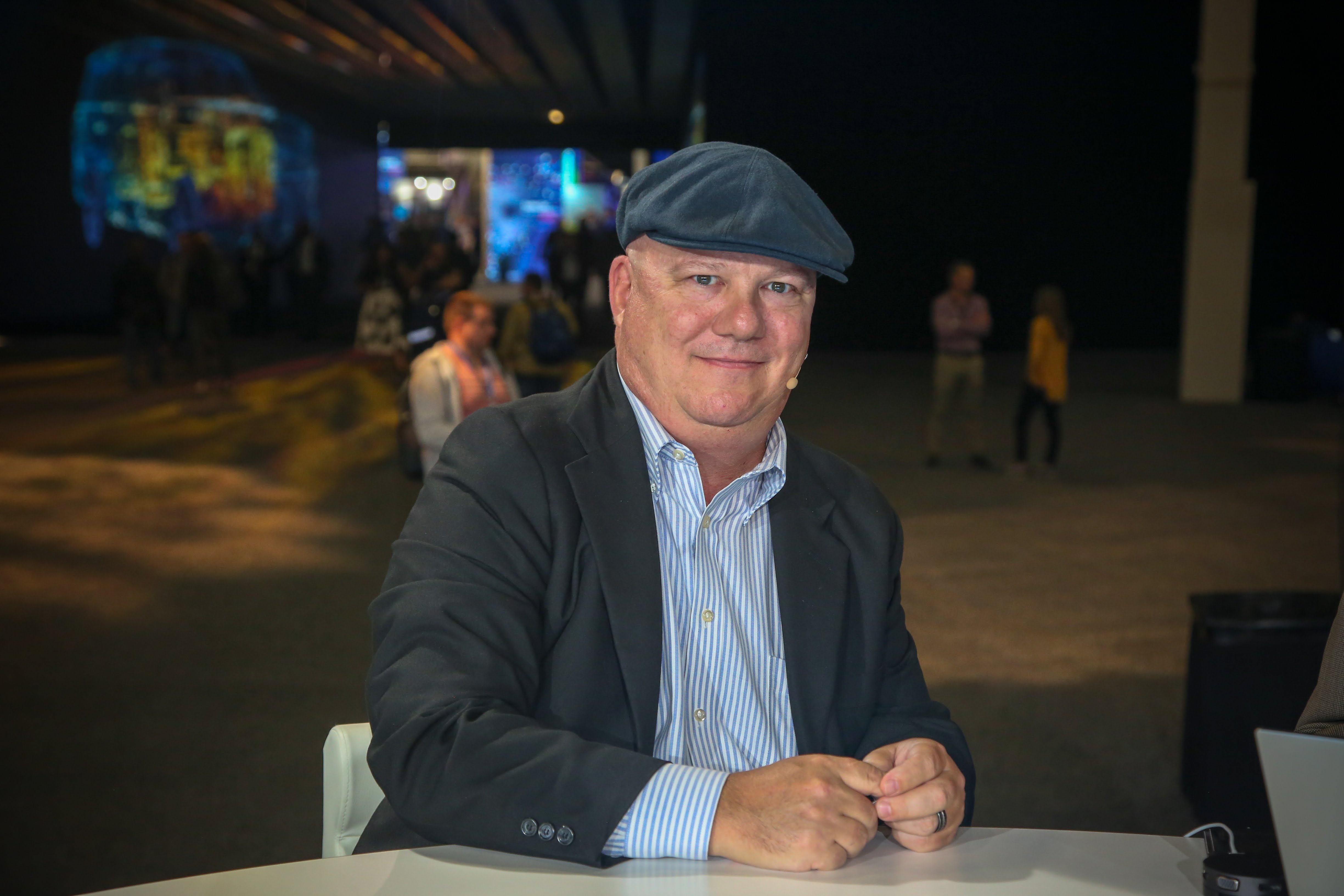 BIG DATA
BIG DATA
 BIG DATA
BIG DATA
 BIG DATA
BIG DATA
The proliferation of data via streamlined processing and optimized storage has allowed genetic analysis services like 23andMe to soar in popularity over the last year, creating mass accessibility around otherwise complex scientific procedures. From answering ancestry DNA questions to finding cures for terminal illnesses, integrating the enigmas of human data with the digital space is expanding possibilities in the biomedical world.
“The democratization of the technology is driving clinical application, which, in turn, is going to benefit all of us,” said James Lowey (picture), chief information officer of the Translational Genomics Research Institute, or TGen. Established 16 years ago in Phoenix, Arizona, this nonprofit biomedical research institute is bringing the solutions sourced through digital transformation to the corporeal world.
Lowey spoke with Stu Miniman (@stu) and Lisa Martin (@LuccaZara), co-hosts of theCUBE, SiliconANGLE Media’s mobile livestreaming studio, at the Dell Technologies World event in Las Vegas. They discussed how advancements in data processing are benefiting the work of TGen. (* Disclosure below.)
TGen was originally built with the mission of bringing biomedical technology to the state of Arizona, a goal they achieved with the guidance of Dr. Jeffrey Trent, one of the first scientists to completely sequence the human genome. Now armed with the power of data technology, the institute is expanding their research.
“Data is our lifeblood. … Every time you sequence a patient, you’re generating about 4 terabytes of data. … It’s turning our analog selves into a digital format that then we can interrogate to come up with better treatments to help patients,” Lowey said.
TGen utilizes the capabilities of Dell EMC Isilon enterprise data storage solution to manage and protect its highly sensitive data. The Institute’s visibility in the organization has given it crucial access to early technologies. “The science moves faster than the IT. So having things like scale-out, super fast flash … new Intel processors, all these things are what really enable us to do our job and to be successful,” Lowey stated.
New emerging technology within the internet-of-things is also proving vital to TGen’s work. “Artificial intelligence is going to be absolutely required to interrogate the vast amounts of data that are being created. … Machine learning … [is] going to be critical, especially when we start building out drug databases … to match the patient with the drug,” Lowey said.
The ultimate goal of TGen’s work is to apply technology to meaningful use, and Lowey is grateful to see the impact the organization has on people’s lives. “Meeting a kid who’s in full remission from brain cancer who was treated using drugs that were derived from being sequenced and run through our labs and computational infrastructure — and having them say, ‘Thank you. … I don’t know how you can beat that,” he concluded.
Watch the complete video interview below, and be sure to check out more of SiliconANGLE’s and theCUBE’s coverage of the Dell Technologies World 2018 event. (* Disclosure: Dell EMC sponsored this segment of theCUBE. Neither Dell EMC nor other sponsors have editorial control over content on theCUBE or SiliconANGLE.)
THANK YOU